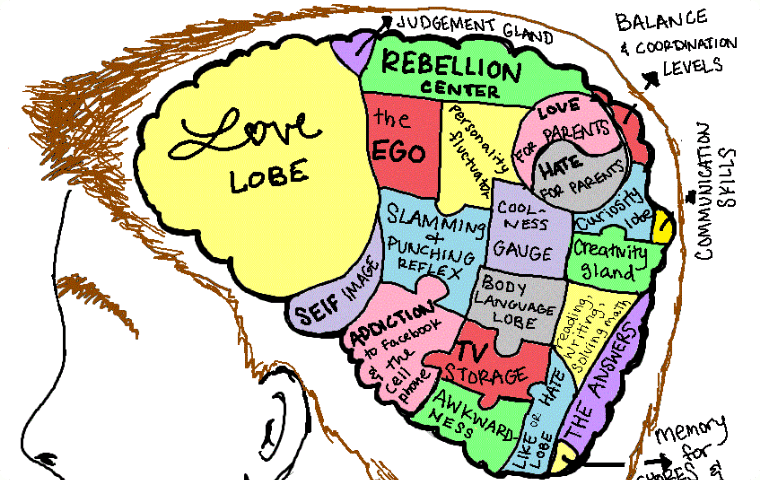As a parent, watching your teen take their first steps towards independence behind the wheel can be both exciting and nerve-wracking. Ensuring that your teen is properly prepared for the challenges of the road is a crucial part of the process. Here is everything a concerned parent needs to know about helping their new teen driver get the most out of driver education.
Importance of Driver Education
Driver education is an essential part of preparing your teen for life on the road. Not only does it help instill a sense of responsibility and accountability, but it also provides the foundation for safe and confident driving habits. According to the National Highway Traffic Safety Administration (NHTSA), drivers who complete driver education courses are less likely to be involved in crashes and are more likely to adopt safe driving behaviors.
Choosing a Driver Education Program
There are a variety of driver education programs available, from in-person classes to online courses. When choosing a program, it’s important to consider the following factors:
- Accreditation: Make sure the program is accredited by a recognized organization, such as the NHTSA or the International Association of Defensive Driving Schools.
- Quality of instruction: Look for programs that have well-trained instructors with a track record of success.
- Content: Ensure the program covers all of the important topics, such as safe driving techniques, traffic laws, and defensive driving strategies.
- Availability of hands-on experience: The best driver education programs provide hands-on experience through behind-the-wheel instruction and practice.
The Stages of Driver Education
Classroom Instruction
Classroom instruction is the first stage of driver education and typically takes place in a traditional classroom setting or online. During this stage, your teen will learn the rules of the road, how to identify road signs and signals, and basic driving techniques.
Supervised Driving
The second stage of driver education is supervised driving. This is where your teen will have the opportunity to practice what they have learned in the classroom with a licensed instructor. This stage is typically completed in a controlled environment, such as a driving school or a private driving range.
Independent Driving
The final stage of driver education is independent driving. This is when your teen will have the opportunity to put what they have learned into practice and drive on their own. This stage is often accompanied by a provisional license, which restricts certain driving privileges until your teen has demonstrated sufficient skill and responsibility.
Important Skills for New Drivers
In addition to the basic rules of the road, there are several important skills that every new driver should master to stay safe on the road. These skills include:
- Understanding the effects of alcohol and drugs on driving
- How to handle emergency situations, such as skidding or hydroplaning
- How to properly adjust mirrors and seat positions to ensure maximum visibility
- How to navigate city and highway traffic
- How to assess weather and road conditions to adjust driving behavior accordingly
Supporting Your Teen's Learning
As a parent, you play a critical role in helping your teen get the most out of their driver education experience. Here are a few ways to support your teen’s learning:
- Encourage active participation: Encourage your teen to ask questions and participate in class discussions.
- Reinforce the lessons: Discuss the lessons learned in driver education with your teen and encourage them to practice safe driving techniques.
- Lead by example: Model safe driving habits for your teen to follow.
- Provide additional practice: Consider providing additional driving opportunities for your teen, such as trips to the grocery store or weekend outings.
The Benefits of Parent-Teen Driving Contracts
One effective way to support your teen’s learning is to establish a parent-teen driving contract. This is a written agreement that outlines the expectations and responsibilities of both the parent and teen when it comes to driving. Here are some of the benefits of using a parent-teen driving contract:
- Sets clear expectations: A driving contract establishes clear expectations for both the parent and teen, reducing the likelihood of misunderstandings.
- Encourages responsible behavior: The contract encourages responsible driving behavior by outlining consequences for breaking the rules.
- Promotes open communication: A driving contract provides an opportunity for open communication between the parent and teen, helping to build trust and foster a positive relationship.
Understanding the Graduated Driver Licensing (GDL) System
Another important aspect of helping your teen get the most out of driver education is understanding the Graduated Driver Licensing (GDL) system. The GDL system is designed to gradually increase a new driver’s experience and responsibilities on the road, helping to reduce the risk of crashes.
The GDL system typically consists of three stages:
- Permit phase: The permit phase allows a new driver to practice driving with a licensed adult supervisor.
- Intermediate phase: During the intermediate phase, the driver is granted more independence, but with restrictions such as no driving after a certain time or with more than one passenger.
- Full license phase: Upon completion of the intermediate phase, the driver is granted a full license, with no restrictions.
It is important to be aware of your state’s specific GDL requirements, as they can vary from state to state.
The Role of Parents in Enforcing GDL Restrictions
Parents play a critical role in enforcing GDL restrictions and helping their teen adhere to safe driving practices. This includes monitoring their teen’s driving habits, such as checking for compliance with restrictions like no texting while driving, and reinforcing the importance of wearing seat belts.
The Benefits of Monitoring Your Teen's Driving
Monitoring your teen’s driving has several benefits, including:
- Reducing the risk of crashes: By monitoring your teen’s driving habits, you can help reduce the risk of crashes by ensuring they are adhering to safe driving practices.
- Improving driving skills: Monitoring your teen’s driving can provide opportunities for feedback and coaching, helping to improve their driving skills over time.
- Building trust: Monitoring your teen’s driving and offering constructive feedback can help build trust and open communication between you and your teen.
The Importance of a Defensive Driving Mentality
Finally, it is important to emphasize the importance of a defensive driving mentality for your teen. This means that they should always be aware of their surroundings, anticipate potential hazards, and be prepared to react accordingly.
Encouraging your teen to adopt a defensive driving mentality can help reduce the risk of crashes and ensure that they are better prepared for the challenges of the road.
In conclusion, as a parent, you play a crucial role in helping your teen get the most out of their driver education experience. From choosing a quality driver education program, to supporting your teen’s learning, to understanding the GDL system and monitoring their driving, there are several steps you can take to ensure your teen is prepared for life on the road.
Liam Hoch researches and writes about safe driving for DriverZ.
Having been a passenger in multiple near-catastrophic vehicle collisions, Liam knows first-hand the dangers of distracted, reckless, and unsafe driving.
Passionate about our core principles of helping to make safer drivers and, ultimately, saving lives, Liam stays at the forefront of driving safety innovation and research.
















